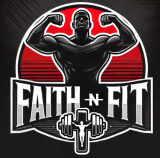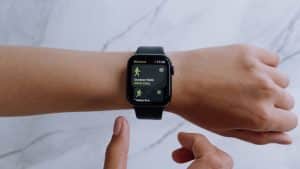Your muscles are screaming for nutrients after that intense training session. What you eat in the hours following your workout can make or break your fitness progress. The right post-workout nutrition accelerates recovery, builds lean muscle, and maximizes the benefits of all that hard work you just put in.
Recovery nutrition isn’t just about grabbing any protein shake or energy bar. Your body needs specific nutrients at precise times to repair muscle tissue, replenish energy stores, and prepare for your next training session. Understanding what to eat after a workout transforms your results from mediocre to exceptional.
The Power of Protein for Recovery
Protein provides the amino acids your muscles need to repair and grow stronger. Without adequate protein intake, your body breaks down existing muscle tissue to get these essential building blocks. This process defeats the purpose of your workout.
Aim for 20 to 30 grams of high-quality protein within two hours of finishing your workout. Excellent sources include lean chicken, fish, eggs, Greek yogurt, and protein supplements. These foods provide complete amino acid profiles that support optimal muscle synthesis.
Carbohydrates: Your Energy Restoration System
Many fitness enthusiasts focus solely on protein and neglect carbohydrates after workouts. This approach slows recovery and reduces performance in subsequent training sessions. Carbohydrates replenish glycogen stores that fuel your muscles and brain.
Your body processes carbohydrates most efficiently immediately after exercise. Simple carbohydrates such as fruit or whole grain toast provide quick energy restoration, while complex carbs offer sustained fuel for the hours ahead. The combination creates an optimal recovery environment.
Creating the Perfect Post-Workout Meal
The ideal post-workout meal consists of a 3:1 or 4:1 ratio of protein to carbohydrates. This combination maximizes muscle protein synthesis while rapidly restoring energy levels. Real food often works better than supplements because it provides additional micronutrients that support recovery.
Consider options like grilled chicken with sweet potato, Greek yogurt with berries, or a protein-packed quesadilla that combines lean protein with complex carbohydrates. These meals provide sustained energy and comprehensive nutrition for optimal recovery.
Hydration: The Forgotten Recovery Essential
Dehydration significantly impairs muscle recovery and protein synthesis. Your body loses substantial fluids during exercise, and replacing them quickly supports every aspect of the recovery process. Water transports nutrients to muscles and removes metabolic waste products.
Drink 16 to 24 ounces of water for every pound lost during exercise. Add electrolytes if you sweat heavily or train for extended periods. Proper hydration enhances nutrient absorption and accelerates the recovery timeline.
Timing Your Post-Workout Nutrition
You have approximately two hours after exercise to maximize recovery benefits, but sooner is generally better. Your muscles remain in a heightened state of nutrient uptake for several hours post-workout.
Plan your post-workout meal before you start training. This preparation ensures you have the right foods available when your body needs them most. Consistency in timing and nutrition choices compounds your results over time.
Fuel Your Success
Post-workout nutrition separates good results from great ones. Your body craves protein for muscle repair, carbohydrates for energy restoration, and adequate hydration for optimal function. Meeting these needs will transform your fitness journey from struggle to success.
Join the Faith & Fitness Family
Subscribe now and get exclusive access to Bible-based fitness content and more!
Bonus: iPhone users get a 14-day free trial of our Faith & Fit workout app!
📩 Important: Please confirm your subscription within 7 days. Unconfirmed emails will be removed to help prevent spam and ensure we only send content to those who want it.
👉 Stay strong in faith and fitness — subscribe today!






